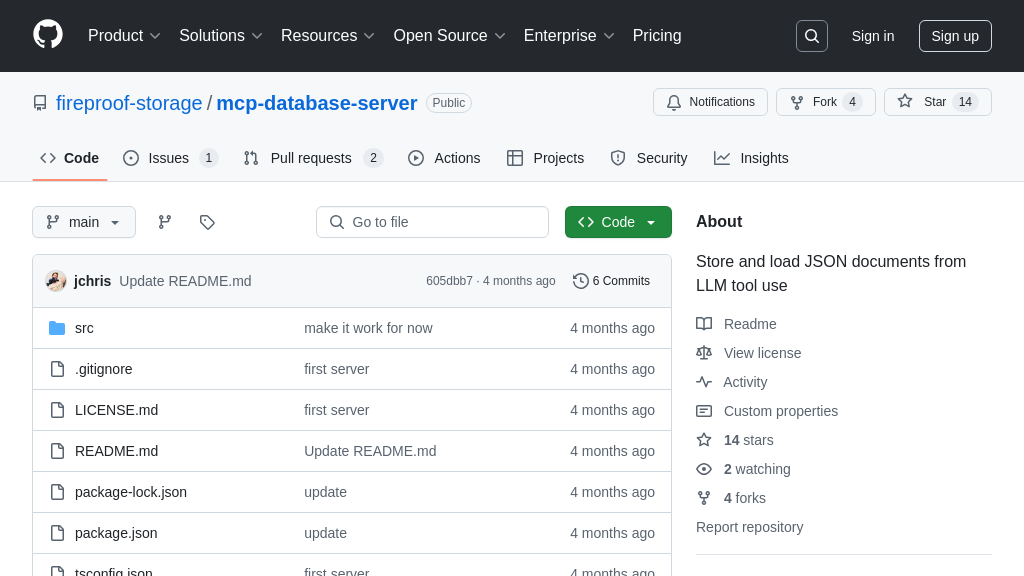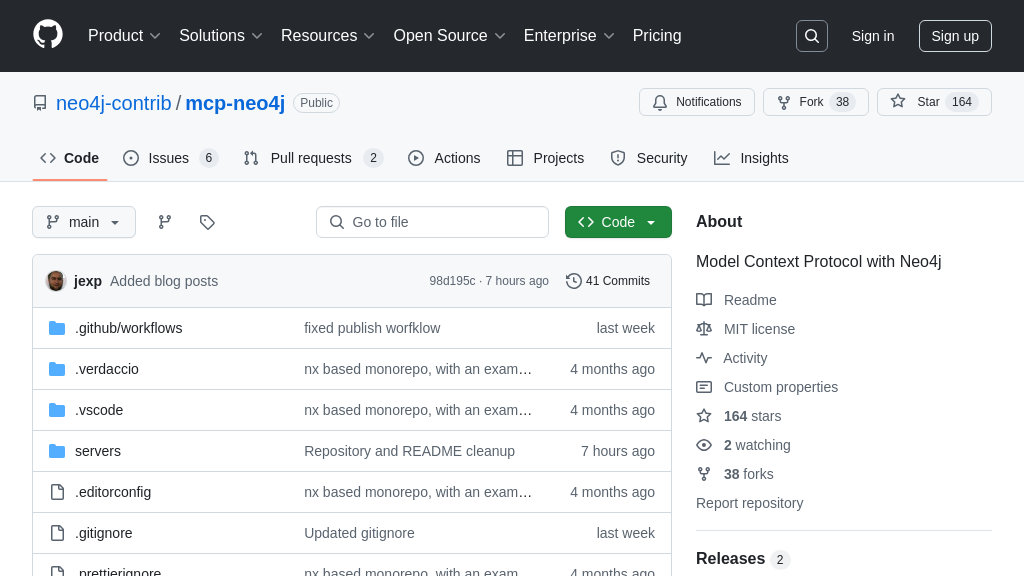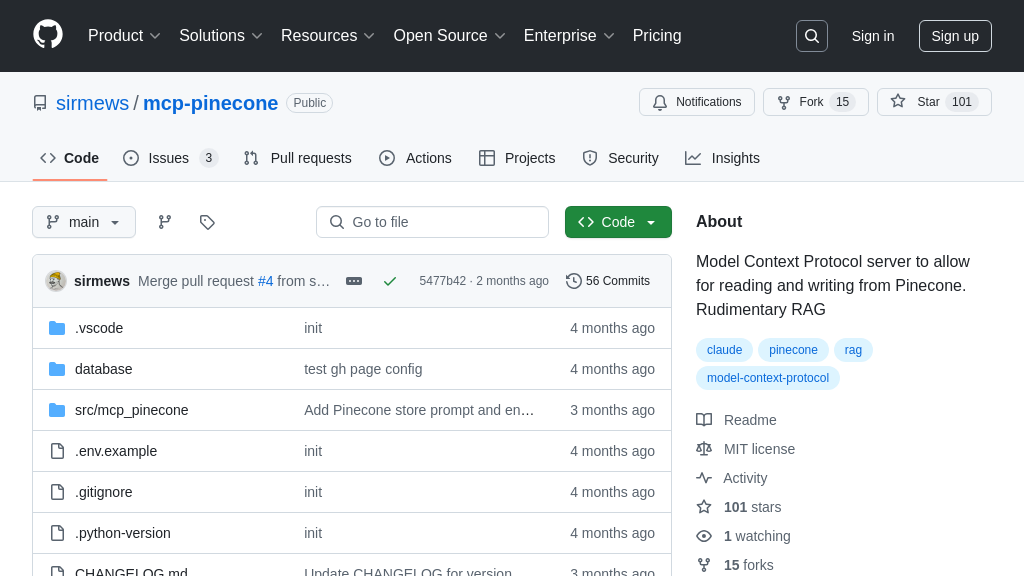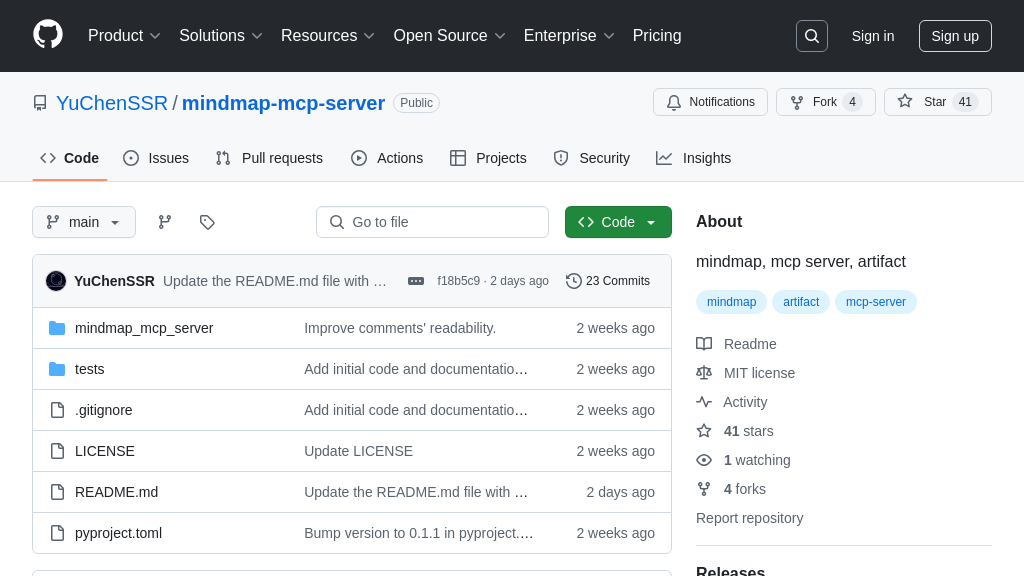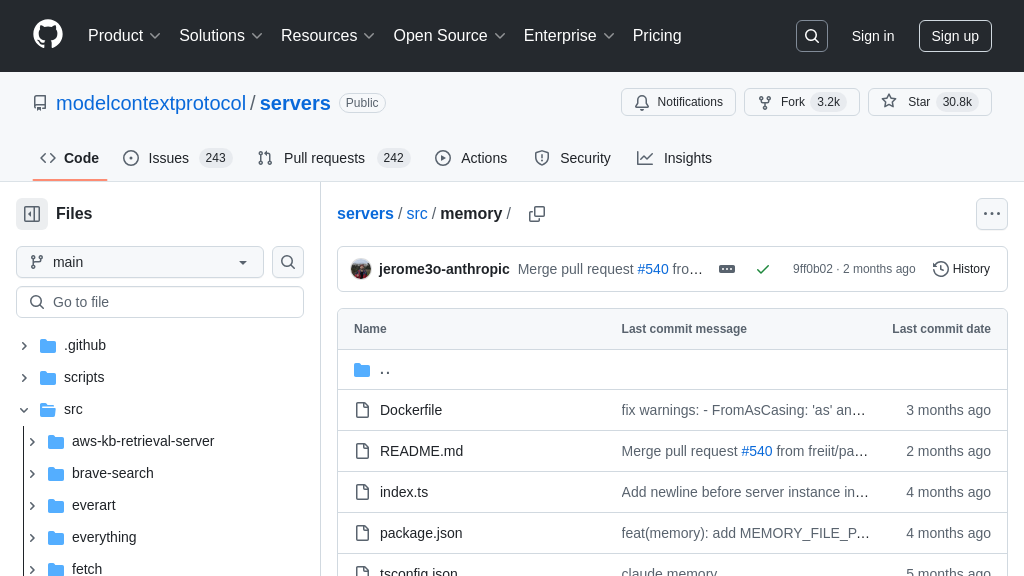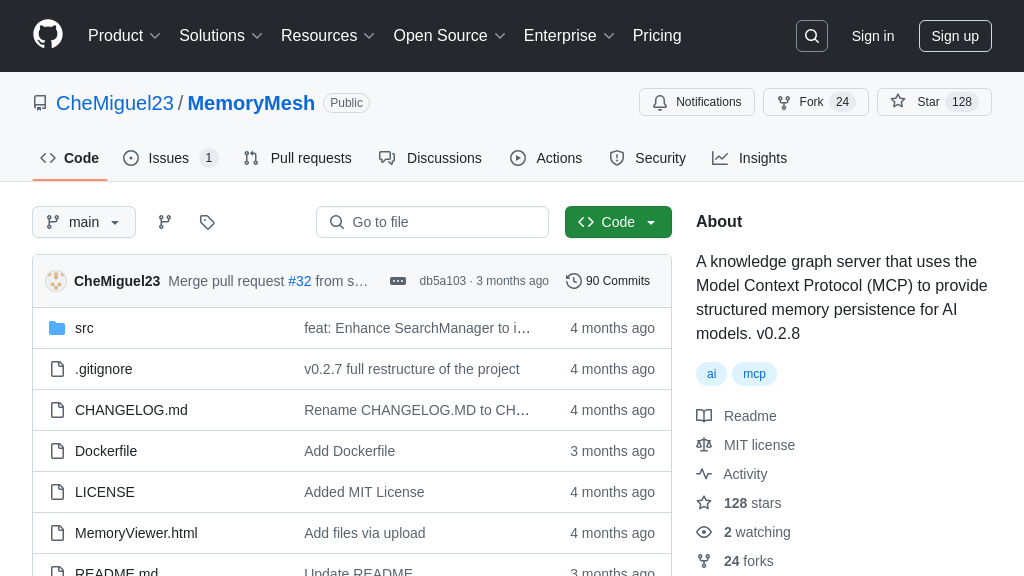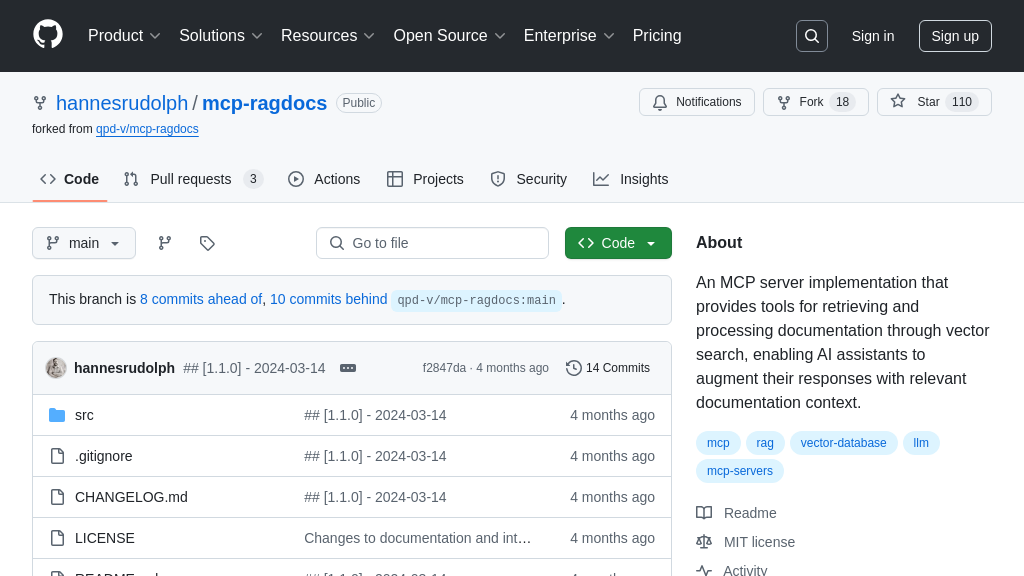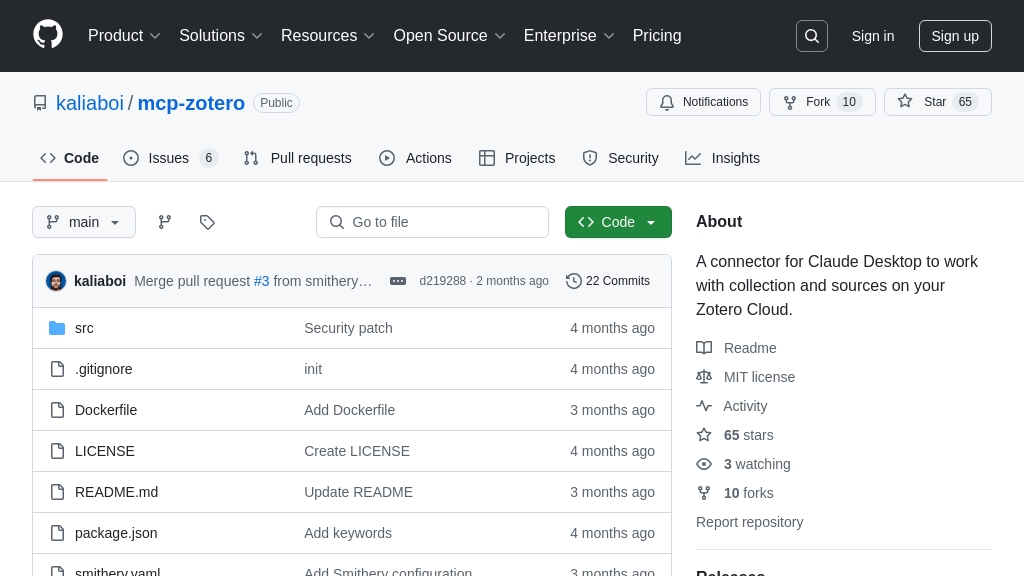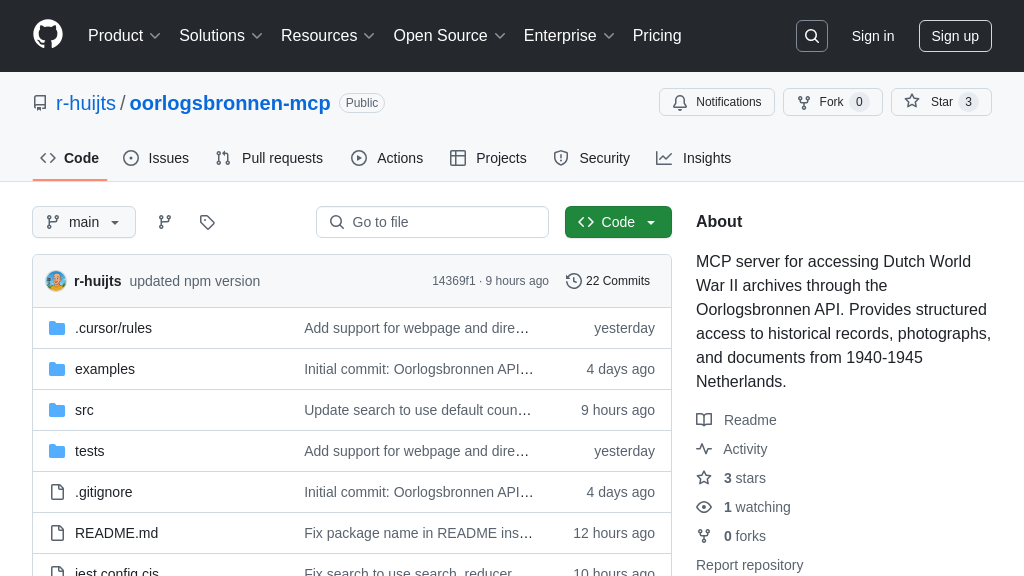Yuque-MCP-Server
Yuque-MCP-Server: Connect AI models to Yuque for automated knowledge management and team analytics via MCP.
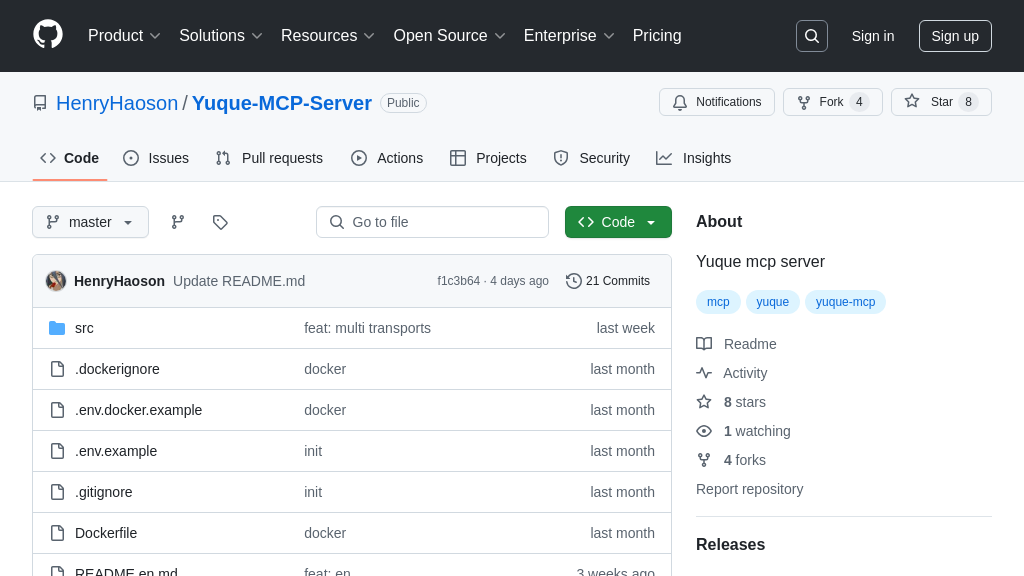
Yuque-MCP-Server Solution Overview
Yuque-MCP-Server is a Model-Context-Protocol (MCP) server designed to seamlessly integrate AI models with the Yuque knowledge base platform. As an MCP server, it acts as a bridge, enabling AI to interact with Yuque's API for tasks like retrieving user and document information, creating, updating, and deleting documents, and performing content searches.
This server empowers AI models to automate document management, streamline information retrieval, and gain valuable team statistical insights from Yuque. It offers tools for managing users, documents, and extracting team statistics, enhancing AI's ability to work with knowledge bases.
Yuque-MCP-Server can be deployed via HTTP or CLI mode, and also supports Docker for easy containerization. It connects to AI models through standard input/output or HTTP/SSE, allowing them to leverage Yuque's rich content and collaborative features. By using this server, developers can unlock new possibilities for AI-driven knowledge management and automation within the Yuque ecosystem.
Yuque-MCP-Server Key Capabilities
Yuque Document Interaction
The Yuque-MCP-Server provides a suite of tools for AI models to interact with Yuque documents, enabling automated document management and content manipulation. This includes functionalities to create, read, update, and delete documents within specified knowledge repositories. The server leverages the Yuque API to perform these actions, offering a bridge between AI models and the Yuque knowledge base. This allows AI models to programmatically manage and organize information stored in Yuque, enhancing their ability to process and utilize knowledge effectively.
For example, an AI model could automatically generate meeting summaries and store them as new documents in a designated Yuque repository. Another use case involves updating existing documentation based on real-time data analysis, ensuring that information remains current and accurate. The server supports various document formats, including Markdown, HTML, and Lake, providing flexibility in content creation and management. This feature addresses the need for AI models to seamlessly integrate with and manage content within the Yuque ecosystem.
User and Knowledgebase Insights
This feature allows AI models to gain insights into user profiles and knowledgebase structures within Yuque. It provides tools to retrieve user information, list user documents, and access knowledge repositories. By using these tools, AI models can understand the context of users and their associated knowledge assets. This enables AI models to personalize content, recommend relevant documents, and tailor interactions based on user-specific information.
For instance, an AI-powered recommendation system could analyze a user's document history and suggest relevant knowledge repositories or documents. Another application involves creating personalized learning paths based on a user's role and expertise, leveraging the knowledgebase structure to guide the learning process. This feature empowers AI models to deliver more relevant and personalized experiences by leveraging user and knowledgebase insights. The server uses Yuque API calls to fetch user profiles and knowledgebase metadata, providing a comprehensive view of the Yuque environment.
Team Statistical Analysis
The Yuque-MCP-Server offers tools for AI models to perform statistical analysis on team activities within Yuque. This includes retrieving aggregated statistics for teams, individual members, knowledge repositories, and documents. By analyzing these statistics, AI models can identify trends, measure engagement, and optimize team collaboration. This feature enables data-driven decision-making and provides insights into the effectiveness of knowledge sharing within teams.
For example, an AI model could analyze team document statistics to identify knowledge gaps and recommend relevant training materials. Another use case involves monitoring member contributions and identifying top contributors to the knowledge base. The server provides a comprehensive set of statistical tools that empower AI models to analyze team dynamics and optimize knowledge management practices. The server uses the Yuque API to fetch statistical data, providing a real-time view of team activities and performance.
